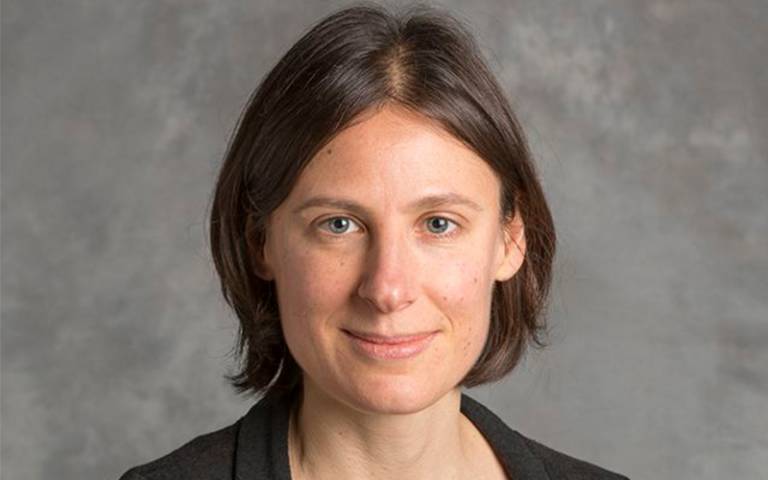Spotlight on Prof Sonya Crowe
9 December 2022
This month we speak to Prof Sonya Crowe to learn more about her research which applies mathematical modelling, problem structuring and data analytics to problems in health.

What is your role and what does it involve?
I’m a Professor of Operational Research based in the Mathematics Department at UCL and the Director of the Clinical Operational Research Unit (CORU). We apply mathematical modelling, problem structuring and data analytics to problems in health. This involves working closely with partners in the NHS, policy makers, third sector organisations, patients and carers. Much of our work aims to support the organisation and delivery of health services. For example, recently we collaborated with UCLH to predict hospital admissions from their emergency department using machine learning based methods implemented in a real time application.
How are you improving the health of the public?
One example is a research project funded by the Health Foundation in which we’re exploring potential improvements to the organisation and delivery of home healthcare through different workforce innovations (such as optimising the size and composition of healthcare teams to meet patient demand, and using algorithms to allocate and schedule home visits efficiently). We’ve developed quantitative models to gauge the potential impact of innovations on various aspects of system performance, such as staff utilisation, continuity of care and workload balance. We’re also working with collaborators Care City, NEFLT, and the London Boroughs of Barking & Dagenham and Redbridge to understand whether the healthcare community in North East London would be ready and able to adopt different workforce innovations.
Another example is contributing to CORU’s programme of research aimed at understanding, improving and communicating outcomes for people with congenital heart disease (CHD). This has involved linking six national datasets (a very challenging and time-consuming process!) to describe, for the first time, the interactions people with CHD have with different NHS services, including what happens when they transition from paediatric to adult care. We’re now using those data to address gaps in the current national reporting of outcomes for CHD services.
What do you find most interesting or enjoyable about your work?
The brilliant people I get to collaborate with! CORU is a wonderfully varied and talented team who bring different perspectives to projects. I also work closely with clinicians, healthcare managers and patients, which prompts me to really think about what I’m doing and why.
How have cross-disciplinary collaborations shaped your research?
Operational research is a discipline that focuses on problem-solving in close collaboration with the people who own or are affected by the problem, so we place a strong emphasis on working with a broad spectrum of stakeholders throughout the research process. Cross-disciplinary collaborations are therefore key to impactful OR, but they are also one of the joys of doing the work we do. As well as working closely with stakeholders across the healthcare system, I’ve collaborated with statisticians, qualitative researchers, epidemiologists, philosophers, designers, engineers and more – embracing these different perspectives enriches and makes possible my research but also inspires and motivates me!
What advice would you offer to others interested in developing cross-disciplinary research?
Invest sufficient time and energy as it can be challenging to work out how different perspectives/paradigms can augment rather than simply sit alongside each other. Be open minded and hone your communication skills!
What's next on the research horizon for you?
Continuing our work related to congenital heart disease and being part of a new embedded research team at UCLH which will help to tackle the hospital’s operational problems, applying problem structuring, analysis and modelling to generate practical insights for decision-making. And lots of other things!
If you could make one change in the world today, what would it be?
More joined up services that consider patients holistically – I see many dedicated and brilliant healthcare professionals who are failed by a fragmented system under extreme pressures, with patients, particularly those with complex or multiple needs, struggling to navigate the system and get the support they really need.
 Close
Close

